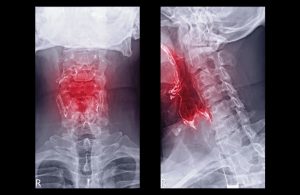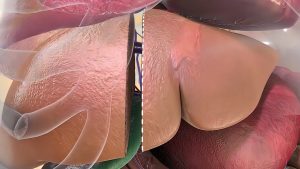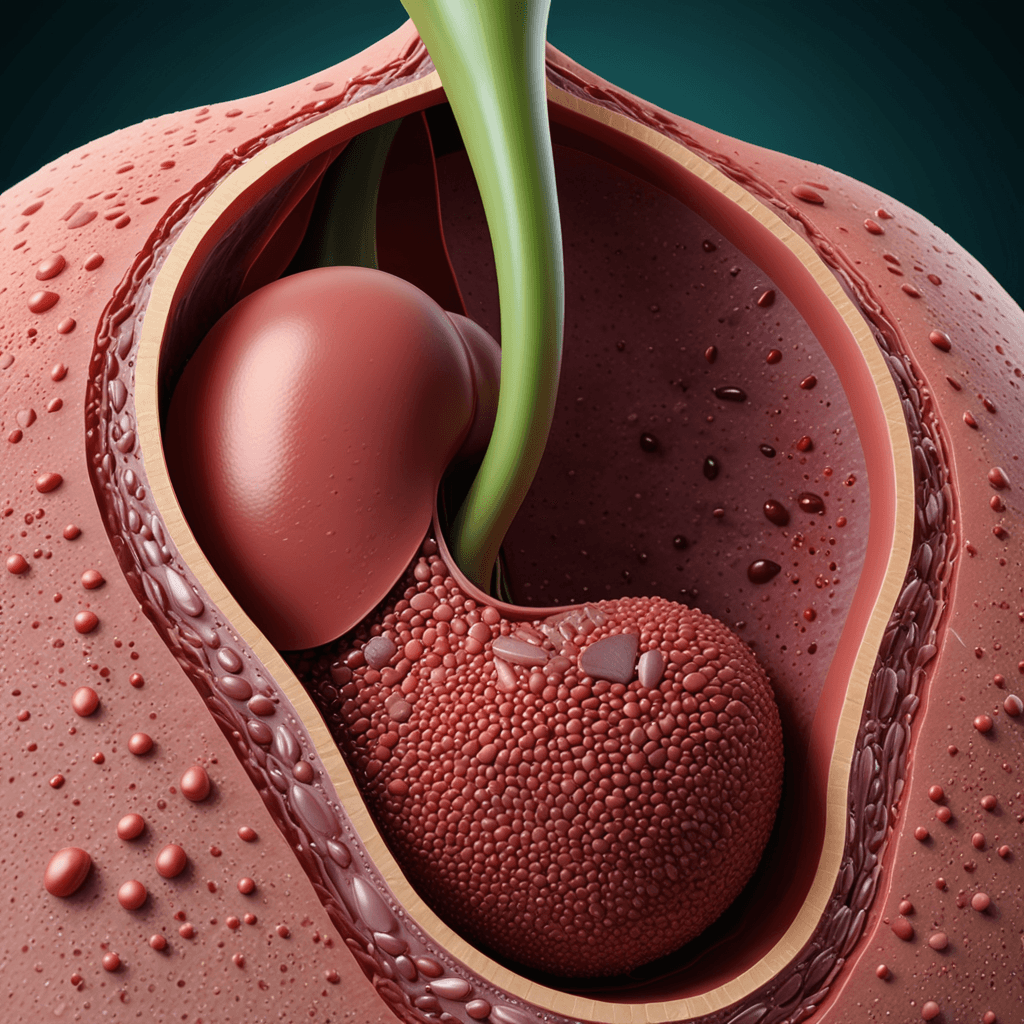Digestive health is key to feeling good overall, but problems like gallbladder disease and GERD (gastroesophageal reflux disease) can cause a lot of discomfort. These common conditions can lead to pain, bloating, and other symptoms that disrupt your daily life. Even though gallbladder disease and GERD are different, they often share similar symptoms, which can make it hard to figure out what’s going on. In this guide, we’ll explain what gallbladder disease and GERD are, how they’re related, their symptoms, causes, treatments, and how to prevent them. Whether you’re dealing with digestive issues or just want to learn more, this article will give you clear and practical information to help you.
What is Gallbladder Disease?
Your gallbladder is a small, pear-shaped organ located beneath your liver. It stores bile, a digestive fluid that helps break down fats. When something goes wrong with the gallbladder, it can lead to gallbladder disease, which includes several different conditions. The most common include:
-
- Gallstones: Hard deposits of bile that can block bile flow.
- Cholecystitis: Inflammation of the gallbladder, often caused by gallstones.
- Biliary Dyskinesia: When the gallbladder doesn’t work properly.
- Gallbladder Cancer: A rare but serious condition that affects the gallbladder.
Common Symptoms of Gallbladder Disease
-
- Sharp pain in the upper right abdomen (which may spread to your back or shoulder)
- Nausea and vomiting
- Indigestion and bloating, especially after eating fatty foods
- Yellowing of the skin or eyes (jaundice)
- Fever and chills if an infection is present
What is GERD?

GERD (gastroesophageal reflux disease) happens when stomach acid frequently flows back into the esophagus, irritating its lining. Unlike occasional heartburn, GERD is a chronic condition that requires ongoing management.
Common Symptoms of GERD
-
- Persistent heartburn (a burning sensation in the chest)
- Acid reflux or regurgitation
- Difficulty swallowing (dysphagia)
- Chronic cough or sore throat
- Hoarseness or a sensation of a lump in the throat
How are Gallbladder Disease and GERD Connected?
While gallbladder disease and GERD are different conditions, they can share similar symptoms, such as abdominal discomfort and nausea, leading to confusion during diagnosis. Additionally, both conditions are influenced by factors like diet, lifestyle, and digestive system health.
Potential Links Between Gallbladder Disease and GERD
- Digestive Function Disruption: The gallbladder aids in fat digestion, while GERD involves issues with the stomach and esophagus. A malfunctioning gallbladder can affect digestion and worsen GERD symptoms.
- Biliary Reflux: In some cases, bile from the gallbladder can flow back into the stomach and esophagus, mimicking or exacerbating GERD.
- Surgical Impact: Individuals who undergo gallbladder removal (cholecystectomy) may experience an increase in GERD-like symptoms due to changes in bile flow.
Causes and Risk Factors
Causes of Gallbladder Disease
-
- Gallstone formation (excess cholesterol or bilirubin in bile)
- Infections or inflammation
- Obesity or rapid weight loss
- Genetics or family history
Causes of GERD
-
- Weakening of the lower esophageal sphincter (LES)
- Obesity or pregnancy
- Hiatal hernia
- Smoking or alcohol use
- Certain medications (e.g., NSAIDs, blood pressure drugs)
Shared Risk Factors
-
- Obesity: Both conditions are more common in overweight individuals.
- Diet: High-fat, fried, and processed foods can trigger symptoms of both GERD and gallbladder disease.
- Age and Gender: Women and older adults are at higher risk for gallbladder disease, while GERD affects individuals of all ages.
Diagnosing Gallbladder Disease and GERD
Since gallbladder disease and GERD can present similar symptoms, accurate diagnosis is essential. Your gastroenterologist may use the following methods:
For Gallbladder Disease
-
- Ultrasound: To detect gallstones or inflammation
- HIDA Scan: Evaluates gallbladder function
- Blood Tests: Check for signs of infection or bile duct blockage
For GERD
-
- Endoscopy: Visual examination of the esophagus
- pH Monitoring: Measures acid levels in the esophagus
- Barium Swallow Test: Assesses swallowing and reflux
Treatment Options for Gallbladder Disease and GERD

Effective treatment for gallbladder disease and GERD depends on the severity of the conditions and individual patient needs.
Treating Gallbladder Disease
-
- Dietary Changes: Avoid fatty, fried, and spicy foods to reduce symptoms
- Medications: Pain relievers or bile-dissolving agents for mild cases
- Surgery: Cholecystectomy is recommended for severe or recurring gallbladder issues
Treating GERD
Lifestyle Modifications
-
- Maintain a healthy weight
- Elevate the head of your bed
- Avoid eating large meals close to bedtime
Medications
-
- Antacids (for quick relief)
- H2 blockers or proton pump inhibitors (reduce acid production)
Surgery
-
- Nissen fundoplication may be an option for severe GERD
Prevention Tips for Gallbladder Disease and GERD
Preventing these conditions often involves adopting a healthier lifestyle and being mindful of dietary habits.
General Tips
- Eat a Balanced Diet: Focus on fiber-rich foods, lean proteins, and healthy fats.
- Stay Active: Regular physical activity can help maintain a healthy weight.
- Avoid Trigger Foods:
-
- For Gallbladder Disease: Fatty, fried, and sugary foods.
- For GERD: Acidic, spicy, and caffeinated foods.
-
- Quit Smoking and Limit Alcohol: Both habits can worsen GERD symptoms and overall digestive health.
- Hydration: Drinking enough water aids digestion and bile flow.
Frequently Asked Questions
Can GERD cause gallbladder problems?
While GERD does not directly cause gallbladder disease, the two conditions can coexist. GERD may mimic symptoms of gallbladder disease, requiring thorough evaluation to differentiate between the two.
Can gallbladder removal worsen GERD?
Yes, some individuals may experience increased GERD symptoms after gallbladder removal due to changes in bile flow. Discussing long-term management with your doctor is important.
What foods should I avoid with gallbladder disease and GERD?
Avoid high-fat, fried, acidic, and spicy foods, as they can trigger symptoms of both conditions. Opt for easily digestible meals that are low in fat.
Are there natural remedies for gallbladder disease or GERD?
While dietary changes and lifestyle modifications can help, always consult a gastroenterologist for evidence-based treatments. Avoid relying solely on unverified remedies.
Can stress worsen gallbladder disease or GERD?
Yes, stress can exacerbate symptoms of both conditions by affecting digestive processes. Incorporating stress-management techniques like yoga or meditation may help.




